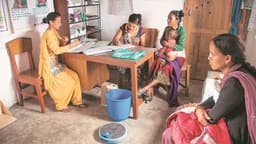Home / Health / Lean Indians Face Surprising Diabetes Risk as 'Thin-Fat' Epidemic Emerges
Lean Indians Face Surprising Diabetes Risk as 'Thin-Fat' Epidemic Emerges
11 Nov
Summary
- Lean Indians at high risk of diabetes due to genetic factors and visceral fat
- Dietary shift to refined grains, sugary drinks accelerating insulin resistance
- Undernutrition in past, overnutrition now fueling diabetes in lean Indians

As of November 11th, 2025, health experts are sounding the alarm about a growing epidemic of diabetes among lean Indians. According to the World Health Organisation, diabetes is a chronic, metabolic disease characterized by high blood glucose levels, often linked to obesity. However, an increasing number of lean Indians are now being diagnosed with this condition, which is becoming a silent and often overlooked health risk.
Dr. Tejaswi V, a consultant in diabetes and endocrinology at Manipal Hospital, explains that this phenomenon is due to a combination of genetic factors and dietary changes. He notes that compared to Westerners, Indians tend to have higher body fat, particularly around the abdomen, known as visceral adiposity. This visceral fat indicates that body weight is not the only indicator of metabolic health.
The endocrinologist further elaborates that certain gene variants can predispose Indians to insulin resistance, even at lower body weights. Additionally, the shift in dietary habits towards refined grains, sugar-sweetened beverages, and processed foods is causing rapid sugar spikes, which, combined with sedentary lifestyles, may accelerate insulin resistance in genetically susceptible individuals.
Dr. Tejaswi also highlights the Thrifty Phenotype Hypothesis, which offers a compelling explanation for the higher rate of diabetes and metabolic diseases among individuals who were undernourished in early life but later exposed to calorie-rich environments, a common scenario in India.
Experts emphasize that recognizing the interaction between genetics and diet is crucial for addressing this emerging health challenge. They recommend prioritizing appropriate lifestyle measures and regular screening to prevent lean diabetes from progressing and to ensure early detection, thereby avoiding long-term complications.



